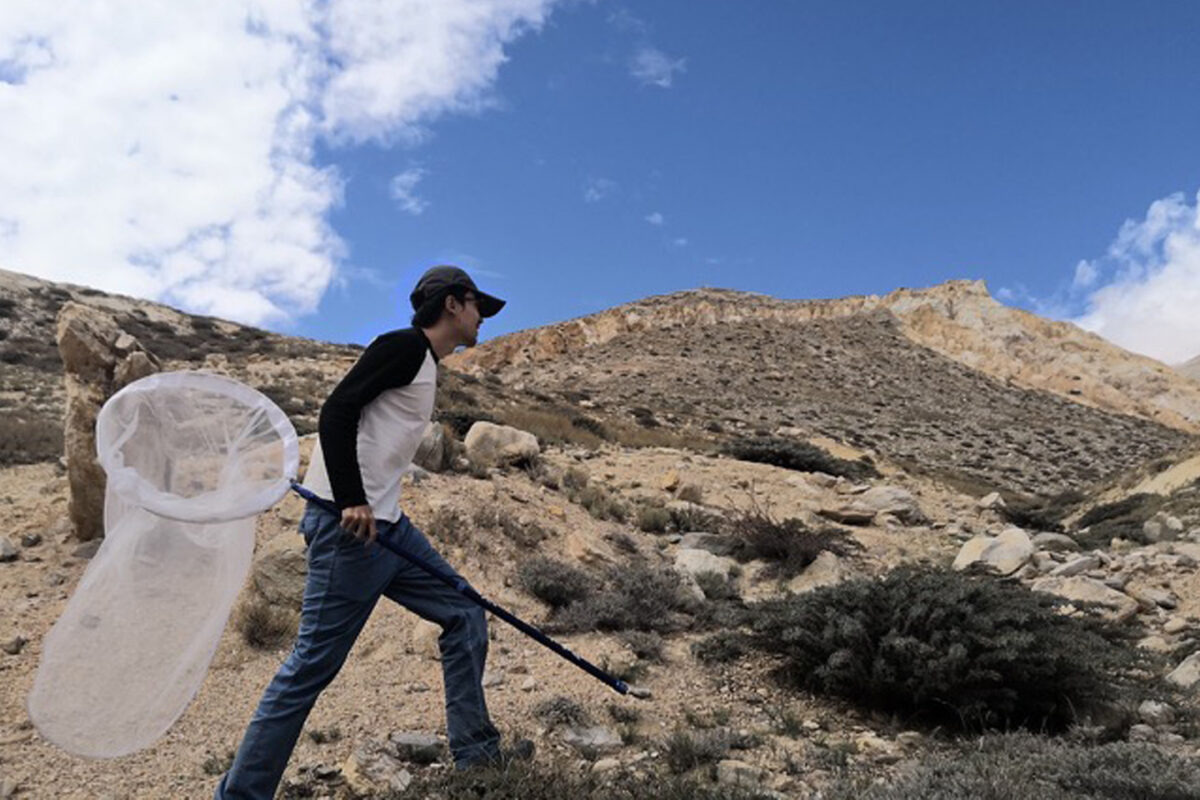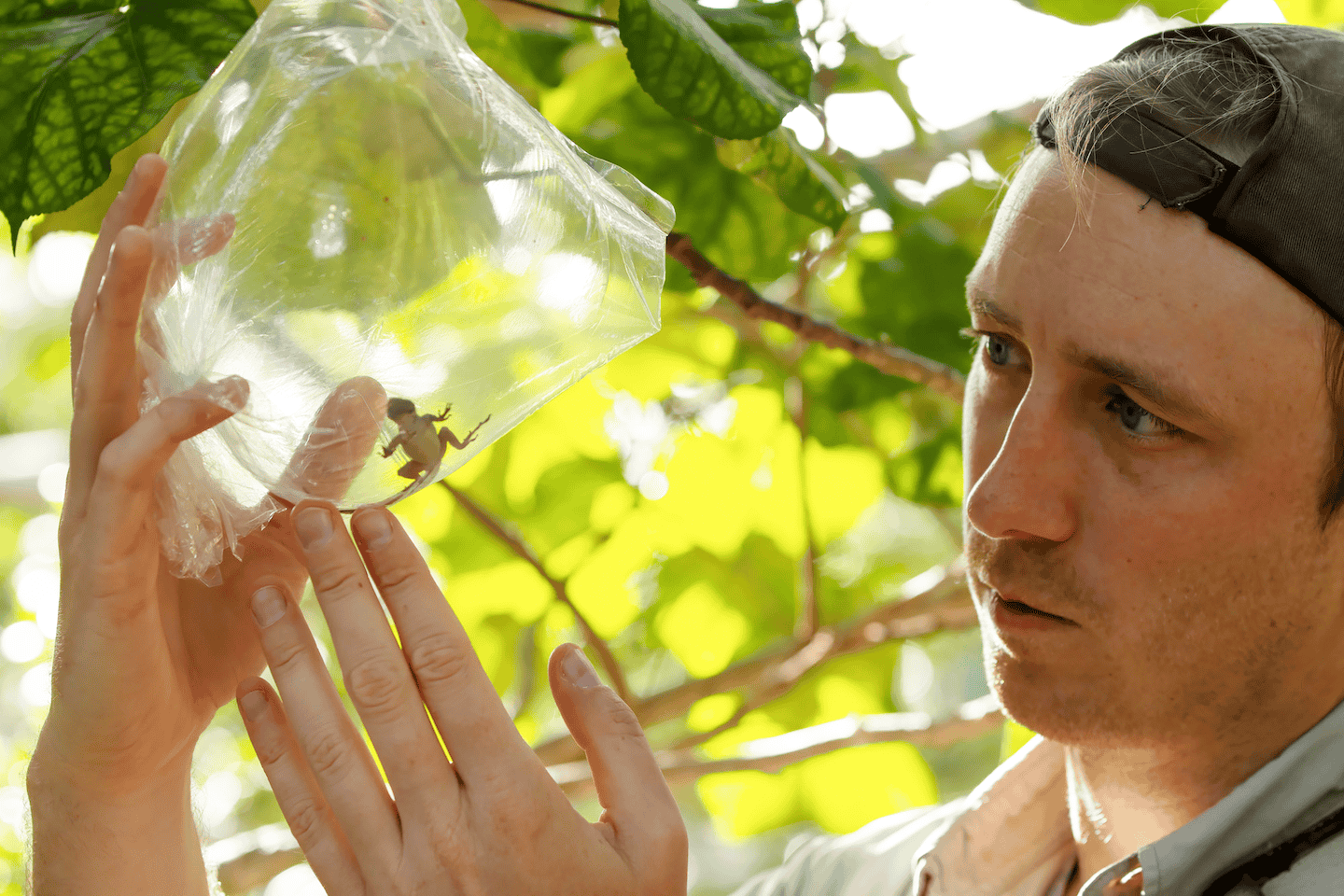Zhengyang Wang
he/him Conservation Biologist Assistant Professor | Sichuan University

Wang studies the biodiversity of the Himalayan-Hengduan Mountains. At Mount Gongga, high in the Himalaya of eastern Tibet, Wang has studied the ecological interactions between ghost moth caterpillars and the Ophiocordyceps fungus that parasitizes them. His work led to the discovery of a third member of the interaction — the plants that serve as the conduit for fungal infection. The mummified remains of the caterpillar-fungus symbiosis are believed to have medical qualities, and Tibetan families have harvested and sold these remains as a source of income for the past five centuries.
A strong component of Wang’s studies are how current insect-human interactions may be impacted by climate change. His research combines field observations with molecular ecological tools, remote-sensing and machine learning methods to derive conservation insights. Most recently, Wang has used LiDAR remote-sensing to assess tree size and ant occupancy in the East African savannah—part of his effort to develop high-throughput ecosystem monitoring tools.

You Might Also Like


